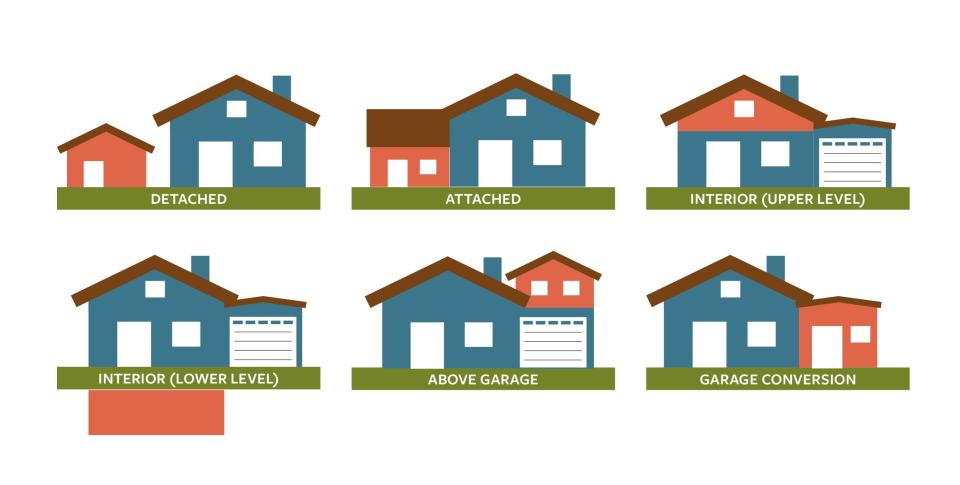What does Mayor Poe’s inclusionary zoning plan mean to you?
- Oops!Something went wrong.Please try again later.
My last column described Mayor Lauren Poe’s inclusionary zoning plan that will allow quadruplexes to be built throughout the city in a consolidated residential zone, with no occupancy limits. In the context of a small city with a large university and a growing community college, where owners typically rent by the room to students for more than $1,000 per month, I concluded that profit, not equity, would be the result, if not the true motivation of Poe’s plan.
But what does it mean to you?
In my former University Park neighborhood just north of the university, and in nearby Golfview, it would be a nightmare. The plan would allow rental by the bedroom to unrelated tenants, of four residential units, each with 3-4 bedrooms, on a single residential lot, with no occupancy limit.
A non-resident owner could put at least 12 unrelated tenants in such a structure, a potential “party house” with no adult supervision. That translates to a total monthly rental of about $12,000 or more per month, not a bad return on investment.
Poe’s plan would also invite property owners to turn their homes over to Airbnb companies, who would be unrestricted in terms of how many “guests” could be housed there at any one time. Can you imagine how this would look during a home football game? As it is, there has long been an Airbnb just north of Parker Elementary School that on one occasion had at least 30-40 people staying in it (illegally), as well as a food truck and multiple vehicles in the yard.
Poe’s plan would be a disaster for any neighborhood close to the university, especially already threatened historically African-American neighborhoods like Porter’s Quarters and Fifth Avenue/Pleasant Street. These areas are already under assault from developers, acre by acre, parcel by parcel, house by house. The opening of Santa Fe College’s new Blount Center downtown will only exacerbate the economic pressure for more luxury student housing in Fifth Avenue/Pleasant Street.
Poe’s plan would eliminate family-oriented residential zoning, as well as the very definition of “family,” which drafters claim is "obsolete." So now real families, like those clustered around public schools, churches and community centers are obsolete? Context is everything. Poe’s plan will destroy family neighborhoods.
More from Robert Mounts:
City development review proposals frustrate public’s right to be heard
A tale of two cities: Gainesville during the day and after midnight
Developer-friendly Gainesville: that’s the way they want it
Years ago, a previous commission and its city attorney fought hard to protect family neighborhoods from unwelcome incursions by students into family housing areas. Relying on the U.S. Supreme Court decision in Village of Belle Terre v. Borass, they enacted laws which limited occupancy in single-family zoning districts to one family as defined in Section 30-2.1 of the Land Development Code:
“Family means one or more natural persons who are living together and interrelated as spouse, domestic partner, child, stepchild, foster child, parent,” and so on... “plus no more than two additional unrelated natural persons occupying either the whole or part of a dwelling unit as a separate housekeeping unit ..." (Emphasis added.)
The Supreme Court upheld such rules in Borass, saying ordinances defining “family” and protecting single-family neighborhoods from unrelated student renters were constitutional and do not violate the equal protection clause of the 14th Amendment.
In practice, this became just “three unrelated persons,” acknowledging, perhaps, that if a single person owns a private residence, they should be able to share that home with others. In that context, there is still one responsible person with a vested interest in maintaining the residence and complying with community standards. It is a lot easier for code enforcement, or any first responder, if the homeowner actually resides there.
However, in 2020, when the City Commission approved accessory dwelling units (ADUs), it allowed not just one, but two ADUs, one attached and one detached, with no owner-occupancy requirement. In so doing, they created the functional equivalent of a triplex, quite suitable as a student rental. Yet it was sold to the public as a way to help a widow/widower to stay in their home and earn extra money by renting out an ADU.

My former neighborhood was fine with one ADU so long as the homeowner resided on-site, either in the principal residence, or the ADU. They were blindsided.
Poe’s proposal goes much further, adding quadruplexes and eliminating occupancy limits altogether. It foretells the destruction of quiet family neighborhoods near our campuses, whether historically white, black, or mixed.
Even one on your street, if filled with student renters or turned into an Airbnb, would transform it beyond recognition.
Robert Mounts, a retired attorney, is the immediate past president of the University Park Neighborhood Association Inc.
Join the conversation
Send a letter to the editor (up to 200 words) to letters@gainesville.com. Letters must include the writer's full name and city of residence. Additional guidelines for submitting letters and longer guest columns can be found at bit.ly/sunopinionguidelines.
Journalism matters. Your support matters.
Get a digital subscription to the Gainesville Sun. Includes must-see content on Gainesville.com and Gatorsports.com, breaking news and updates on all your devices, and access to the eEdition. Visit www.gainesville.com/subscribenow to sign up.
This article originally appeared on The Gainesville Sun: Robert Mounts: Mayor Poe's housing plan will destroy neighborhoods

